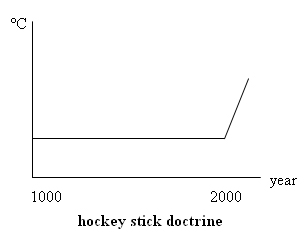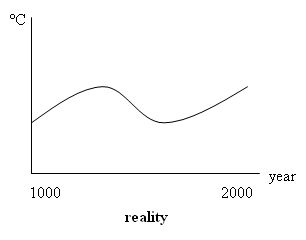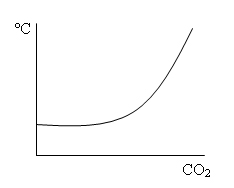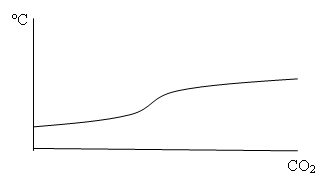Nejnovější
- Václav Klaus v diskusním pořadu slovenské televize RTVS: Jaká změna přichází s Trumpem?
- Notes for Montenegro: A World Order Under Threat. Is There Any Chance to Change It?
- Václav Klaus v 59. díle pořadu XTV: Pane prezidente!
- Institut Václava Klause obdržel Cenu za svobodu projevu
- Václav Klaus na Univerzitě Komenského v Bratislavě: 35 let od konce komunismu
Nejčtenější
- Václav Klaus pro MF Dnes: Mnozí se už stačili „prekabátit“
- Jiří Weigl: Česká politika začíná mít znovu problém
- Václav Klaus: Jdeme od listopadu 1989 stále kupředu? Pohled jednoho z aktérů tehdejší doby
- Jan Fiala: Včerejší lesk a dnešní bída progresivismu
- Václav Klaus v 59. díle pořadu XTV: Pane prezidente!
Hlavní strana » English Pages » Introducing the Polish…
Introducing the Polish Version of Blue, not Green Planet
English Pages, 13. 10. 2008
I am really pleased to be here, with President Kaczyński, with Rector Budnikowski, with the representatives of the publishing house Rzeczpospolita, and with all of you.
I am glad that my book “Modrá, nikoli zelená planeta” (in Polish “Błękitna Planeta w Zielonych Okowach”) has – after Czech, English, German, Dutch, Russian and Spanish editions – also a Polish version. I would like to thank all who helped to make it possible.
The main message of my book is captured in the subtitle – What is Endangered? Climate or Freedom? (Co jest zagrożone: klimat czy wolność?) My answer to this question is very clear and straightforward: “Endangered is freedom. Climate is O.K.”
After spending several years studying this issue I came to the conclusion that we were deceived. The Great Global Warming Debate is not about temperature or CO2 levels. It is not a scientific dispute inside climatology. It is a dispute about us, about people, about human society, about our values, our habits, our life. It is a clash between those who want to change us (not climate) and those who believe in freedom, markets, human ingenuity, and technical progress.
Global warming doctrine – as a part of environmentalism – is an ideology which uses (or better to say misuses) some elements of scientific enquiry to a totally non-scientific goals and aims. Its goal is to mastermind the world and all of us.
In my book and in all my other texts and speeches I try to demonstrate the swindle and the emptiness of the environmentalists’ dogma. Its main postulates can be summarized in the following way:
- the world has been getting warmer;
- the people are to blame;
- we are facing a major catastrophe;
- usual adaptation of human beings to changing circumstances, up to now many times proven and sufficient, will not help; mitigation, which means changing climate, temperature and CO2 emissions, however costly it may be, must start immediately.
These views are untenable.
I don’t want to alternatively measure the average global temperature (even though I am not sure about either the past, indirectly reconstructed data, or directly measured contemporary data), but I am not convinced that we witness a unique, unprecedented, large and man-made global warming. On the contrary, the available evidence tells me that:
1. The warming is not global. It is only in the cold, not in tropical regions, in dry, not wet areas, in the winter, not in the summer, and during the nights, not during the days. That is not a global warming;
2. The warming is not large. A very aggressive lady-journalist in Seattle, USA, last week, in the debate after my lecture there, was shocked by my - for her - politically incorrect views. She, without a slightest hesitation, accepts the global warming mantra. She did not, however, know and did not want to believe me that the average temperature increase in the last century in the whole world was only 0.74 °C.
3. The warming is not unique and unprecedented. In this respect I have to refer to the famous hockey stick debate:


4. The warming is also probably not man-made or CO2-made. There are many other factors influencing the temperature and climate and there exist many uncertainties in the whole very complex and insufficiently understood climate system. What is definitely not true is the hypothesis of an explosive, non-linear impact of CO2 level on the temperature. It is not true that the CO2-temperature relationship is something like this curve:

It is – with all the problems of causality or of only correlation – more like this following curve:

The two diagrams give us a totally different story.
I would be able to continue bringing other similar arguments but my book is not about climatology, it belongs to the field of the economics of global warming as can be seen from the titles of individual chapters of the book.
The most important issue in this respect is the way how to look at the future and how to approach the intergenerational solidarity (or discrimination) dilemma. This asks for the standard application of the economic concept of discounting. We have to look at it rationally – not with ethical or moralistic apriorisms – but with taking into account the opportunity costs of fighting the climate. These costs are nonzero and the discount rate, used in climatologist models, shouldn’t be zero either.
I don’t think that radical, human freedom and prosperity endangering measures and policies are necessary. Human adaptation, human flexibility, technical progress and the markets will be sufficient.
Václav Klaus, Warsaw School of Economics, Warsaw, Poland, 13. October 2008
- hlavní stránka
- životopis
- tisková sdělení
- fotogalerie
- Články a eseje
- Ekonomické texty
- Projevy a vystoupení
- Rozhovory
- Dokumenty
- Co Klaus neřekl
- Excerpta z četby
- Jinýma očima
- Komentáře IVK
- zajímavé odkazy
- English Pages
- Deutsche Seiten
- Pagine Italiane
- Pages Françaises
- Русский Сайт
- Polskie Strony
- kalendář
- knihy
- RSS
Copyright © 2010, Václav Klaus. Všechna práva vyhrazena. Bez předchozího písemného souhlasu není dovoleno další publikování, distribuce nebo tisk materiálů zveřejněných na tomto serveru.
















